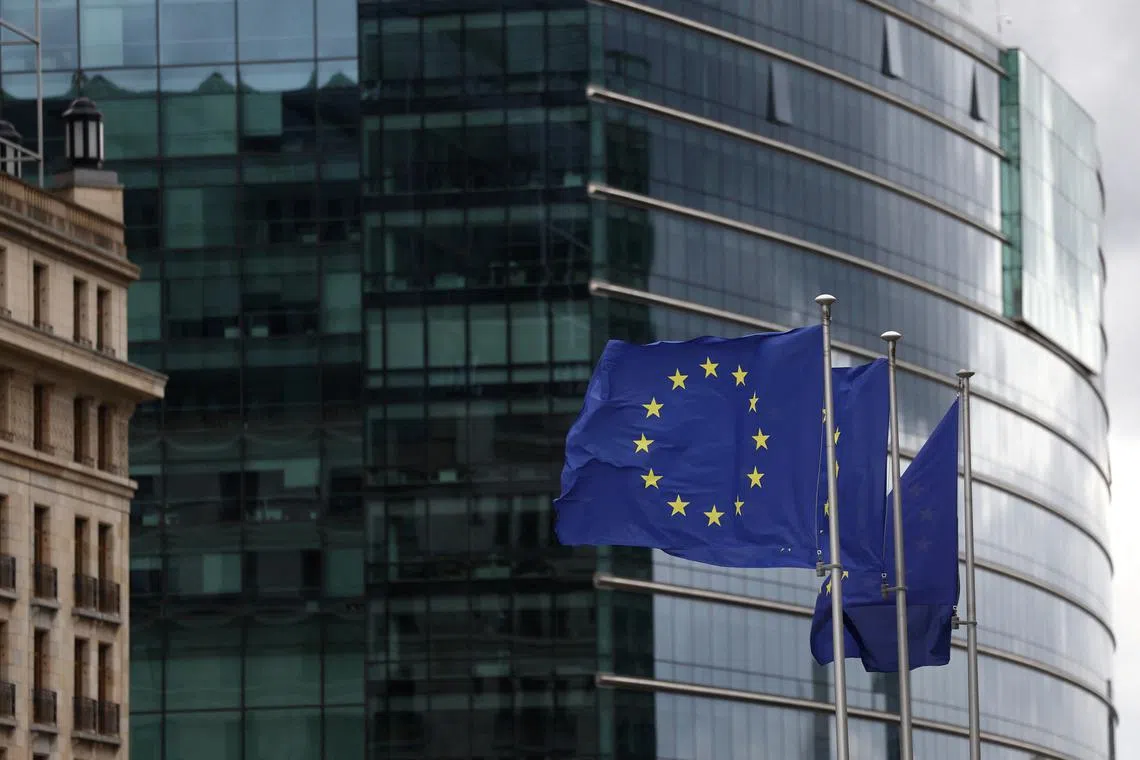For subscribers
Europe, a laggard in AI, seizes the lead in its regulation
The world’s first AI regulation is a bit of a mixed bag.
Sign up now: Get ST's newsletters delivered to your inbox

It remains unclear how well the AI Act will be enforced - an ongoing problem with recent digital laws passed by the EU, given that it is a club of independent countries.
PHOTO: REUTERS
Two things European lawmakers should get credit for are stamina and an extraordinary tolerance for bad food. Representatives of the EU Parliament, member governments and the European Commission, the bloc’s executive body, spent nearly 40 hours in a dark meeting room in Brussels until the wee hours of Dec 9 hashing out a deal on the AI Act
This ultramarathon of negotiation was the end point of one of the most diligent lawmaking processes ever. It started in early 2018 with lengthy public consultations and a weighty 52-person “high-level expert group”, which in 2020 led to a white paper on which all could comment online (1,250 groups and individuals did so). The legislation has yet to be released because kinks still need to be worked out, but the draft version was a document of nearly 100 pages and almost as many articles.


